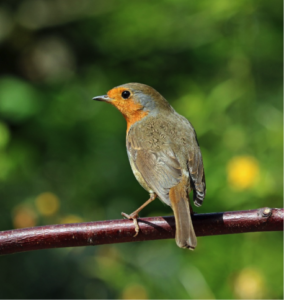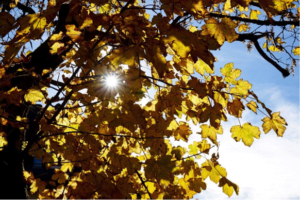
Many people have heard about the “battle” to prevent a Local Authority contractor cutting down some of Sheffield’s trees as part of a road maintenance contract. National newspapers, charities, celebrities, and local protesters have all decried the loss of the trees; as well as the tactics of the contractors, security staff and, lately, the police in ensuring seemingly healthy trees are removed. Some of the trees are old, and some were planted as a living Memorial to soldiers who died in the first world war.
It is claimed that working around the earmarked trees makes the contractor’s road-repairing methods more costly and so they must go; despite suitable alternatives being proposed by those concerned about the loss. Replacement trees are promised but, clearly, these will take years to provide any form of canopy.
The methods and reasons for removing these trees are not the purpose of this article; however, the impact of the loss trees within Sheffield, is.

Much has been written about the value of nature and trees for the human psyche and well-being. Sites such as People Need Nature explore this topic at length; and the loss of the green canopy in Sheffield will be keenly felt.
However, another impact of losing trees in considerable numbers, is one of the loss of nesting and roosting sites for urban birds. Established trees provide year-on-year habitats for urban birds to successfully nest.
Birdsong is one of the more pleasurable sounds in an, often, hard landscape of sound in the city. Humans must withstand sonic bombardment from traffic, music, and technology whilst traversing the city. It has been demonstrated that the softer sounds, like birdsong, can act as a soothing distraction from the hard noises; and reduce the stress-inducing effects of urban life and noise on the human mind. The lessening of birdsong due to a loss of habitat in Sheffield could have implications for the well-being of its people.
A study published in January, carried out by Kings College London, J&L Gibbons architects, and the Nomads Project, has demonstrated that birdsong “can boost mental well-being for more than four hours” after it is experienced (Telegraph Jan 2018) . In addition, the research shows that the harsh city sounds do little to mitigate our mood.

The researchers found that, not only did birdsong create an immediate improvement in well-being, but the effects lasted for hours afterwards. It also documented that the improvement in well-being was measurably higher in those people who were at greater risk of of developing mental health disorders, due to their personality traits.
This study is the latest in a long line of research which demonstrate that birdsong, and trees, are more than just an optional pleasure of living in cities – to many it is one of the necessities which keeps their minds from being overtaken by the stresses of modern urban living, family relationships, work, caring, and financial worries.
The researchers used a new smartphone App to record reactions to different environments in real time; providing valuable measurable data in an area of research which is difficult to monitor in the “real” world, away from labs, and static questionnaires answered after the fact. This robust study should be noticed by anyone planning, working, or contracting within the urban environment.
The study’s authors state that their hope is that the research “provide(s) a much-needed evidence base for the benefits of nature within urban areas … we hope that the results will inform future … policies, helping build healthier cities”
However, this hope is not reflected in the current position taken by Sheffield City Council. The number of trees expected to be felled under the contract – around 6000 – was an already disturbing figure; however, this has now been demonstrated to be a severe underestimate. A recent Freedom of Information request response, which Sheffield City Council has been forced to respond to, has revealed that the contract may allow the number of trees to be felled in Sheffield to be in the region of 17500 – half of Sheffield’s total street tree stock. Although the Council deny this is their target figure, it differs widely from the figures they have previously discussed in connection with the present contract.
Whatever the final number of trees felled; as the number of trees in Sheffield’s suburbs diminish, and nesting and roosting sites reduce, the effect on urban birds is, as yet, unknown. Will they go back to the countryside, or will they die out due to a shortage of sites to raise the next generation?
Either way, the loss to Sheffield’s human population could have implications for more than the tree and bird populations. If we dont create green, bird-friendly environments, we may face a future which demands more mental health spending; creates more human suffering; and more physical illness brought on by sustained and unrelenting stress.
It is worth noting that people with mental ill health are twice as likely to die from heart disease than the general population (NHS Confederation). It is estimated that approximately 23% of disability in the UK is caused by mental ill health (Fineberg (2013); and in 2013/14 over 3 million people were on GP registers for depression, and over half a million registered for more serious mental health conditions.
The loss of the trees in Sheffield, a city which (currently) has more trees per person than any other city in Europe, sparks concern not only for the loss of an aesthetic green canopy; but for the silence which will follow, as the birds lose their residencies – leaving the human population more exposed to the hard sounds of the city, and the effects on their mental and physical health which follow.
Jane Wilkinson lives in Sheffield.

Comments are closed.